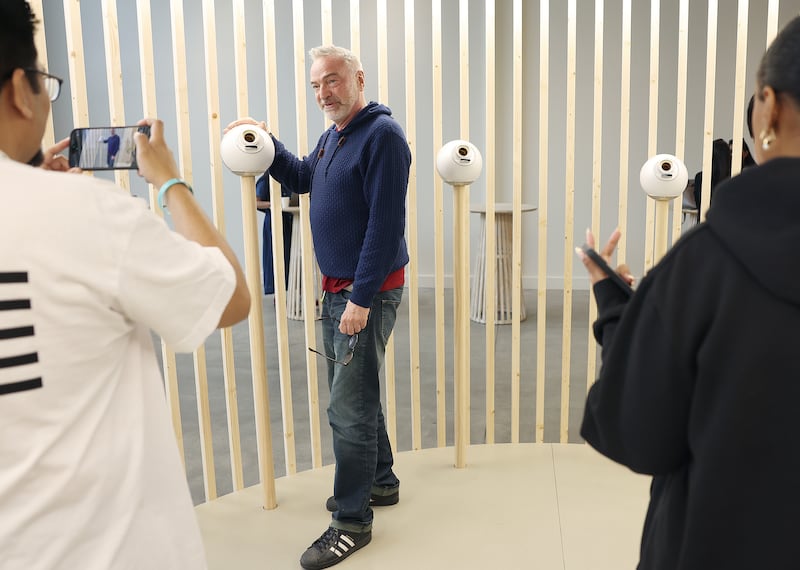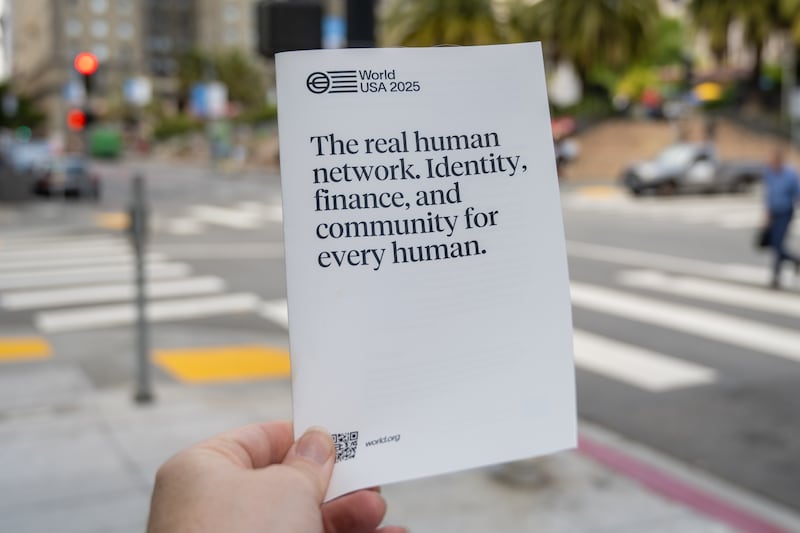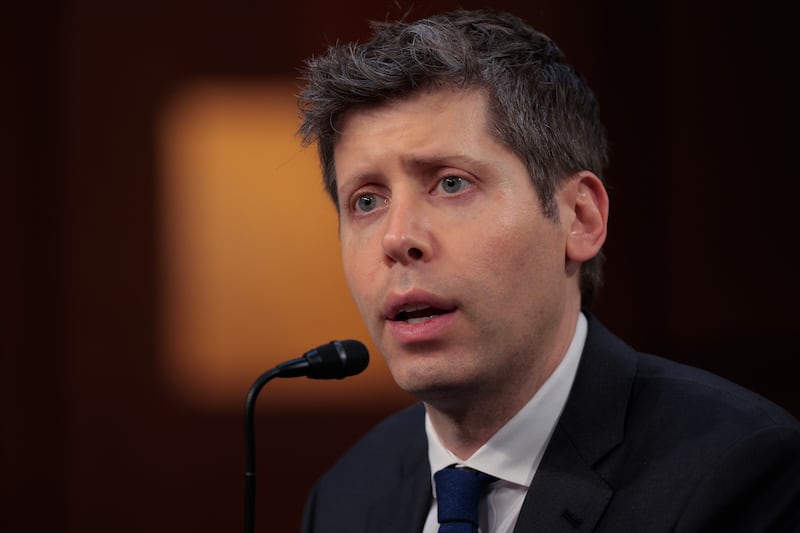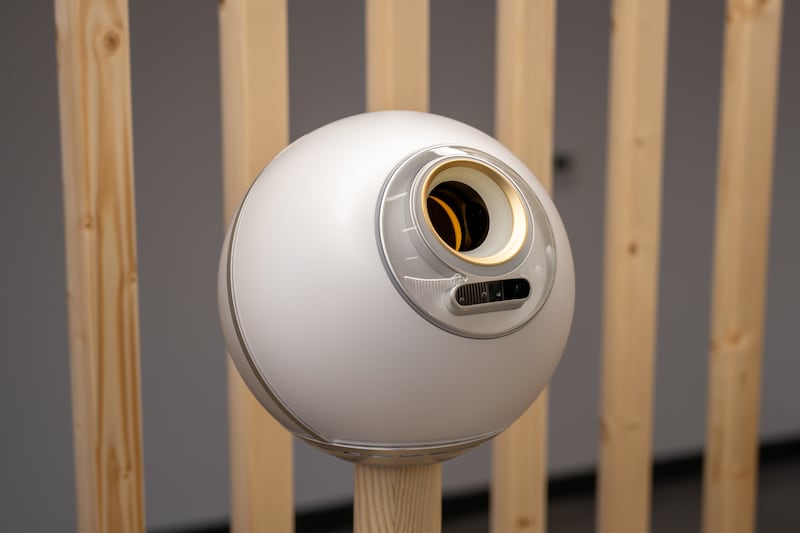OpenAI’s Sam Altman has unveiled his masterplan to save the internet from a slew of AI-generated slop—a white, beach ball-sized sphere known as the Orb which scans your iris.
The Orb, developed by Altman-backed start-up Tools for Humanity, aims to provide “proof of humanity” by scanning users’ biometrics and converting them into a unique 12,800 digit “iris code” which can be used as an unforgeable form of digital verification.
In exchange for their data, users will be gifted a small amount of cryptocurrency called WorldCoin, currently valued at around $42, which will be added to their digital wallet.
“We wanted a way to make sure that humans stayed special and central,” Altman told a crowd in San Francisco earlier this month. “We needed some way of identifying, authenticating humans in the age of AGI (artificial general intelligence).”
Altman’s vision stems from a looming problem: as AI grows more sophisticated, distinguishing between humans and bots online will become nearly impossible. AI-generated content already floods social media, and automated agents could soon dominate digital interactions. Without a way to authenticate real people, Altman argues, trust in the internet could collapse.
“The internet will change drastically in the next 12 to 24 months,” Tools for Humanity CEO Alex Blania told Time. “So we have to succeed, or I’m not sure what else would happen.”

Tools for Humanity argues that to combat the rising tide of AI junk, an entirely new internet infrastructure needs to be created. The Orb is designed to be that solution. By scanning irises—which, like fingerprints, are unique to each individual—it creates a “World ID” that websites and apps can use to confirm a user’s humanity. The system is built with privacy in mind: the original iris scan is immediately deleted, and the derived data is encrypted and split across servers to prevent reconstruction.
Tools for Humanity aims to verify over 50 million humans by the end of 2025, and eventually hopes to get every single human being to sign up to the service. And after trialling the service at a number of overseas locations over the past several years, the Orb is finally coming to the U.S.
Over the next 12 months, 7,500 orbs will be rolled out across a number of American cities, in a number of mundane, high-traffic areas such as gas stations, bodegas and flagship stores in major shopping districts in an attempt to encourage as many signups as possible.

But while Tools for Humanity hopes the U.S. rollout will kickstart a new phase of growth, the public seems less enthusiastic about selling their biometric data for $42 worth of crypto.
Since the project launched in 2023 just 12 million people worldwide have volunteered to be verified by the Orb, which the company concedes falls far short of its own internal projections. The lack of platforms which support the “World ID” also provides little incentive for users to seek out the service.
Criticism has also been levelled at Altman’s involvement in the project, with detractors claiming the OpenAI CEO already wields too much power in the AI market and seeks to consolidate his role even further as the de facto head of a new digital government.
“Worldcoin is a potential privacy nightmare that offers a biometrics-dependent vision of digital identity and cryptocurrency, and would place Sam Altman’s Tools for Humanity company at the center of digital governance,” the Electronic Privacy Information Center (EPIC) said in a statement.

“Worldcoin’s approach creates serious privacy risks by bribing the poorest and most vulnerable people to turn over unchangeable biometrics like iris scans and facial recognition images in exchange for a small payout. Mass collections of biometrics like Worldcoin threaten people’s privacy on a grand scale, both if the company misuses the information it collects, and if that data is stolen.”
They added: “Ultimately, Worldcoin wants to become the default digital ID and a global currency without democratic buy-in at the start, that alone is a compelling reason not to turn over your biometrics, personal information, and geolocation data to a private company. We urge regulatory agencies around the world to closely scrutinize Worldcoin.”
Yet despite touting its revolutionary potential and seeking to gain the most from it, even Altman himself remains skeptical as to whether the Orb will actually take off.

“I can see [how] this becomes a fairly mainstream thing in a few years,” he said. “Or I can see that it’s still only used by a small subset of people who think about the world in a certain way.”
Divya Siddarth, founder of the nonprofit Collective Intelligence Project, largely agrees with Altman. “There are some issues with it,” she admitted. “But you can’t preserve the internet in amber. Something in this direction is necessary.”
The post OpenAI Wants to Scan Your Eyeballs in Exchange for $42 of Crypto appeared first on The Daily Beast.




